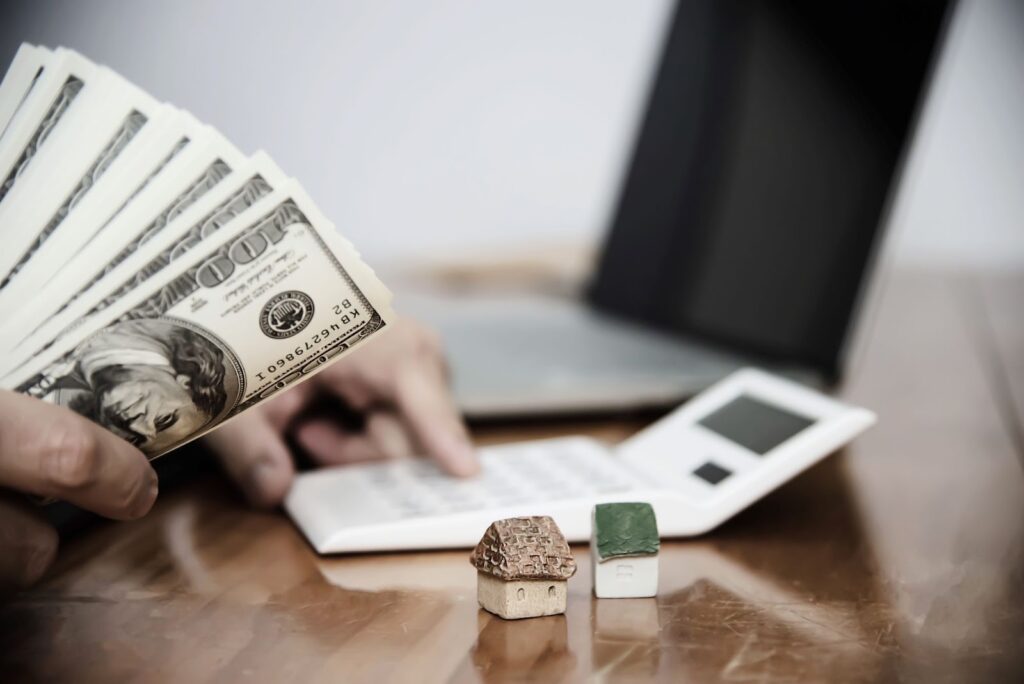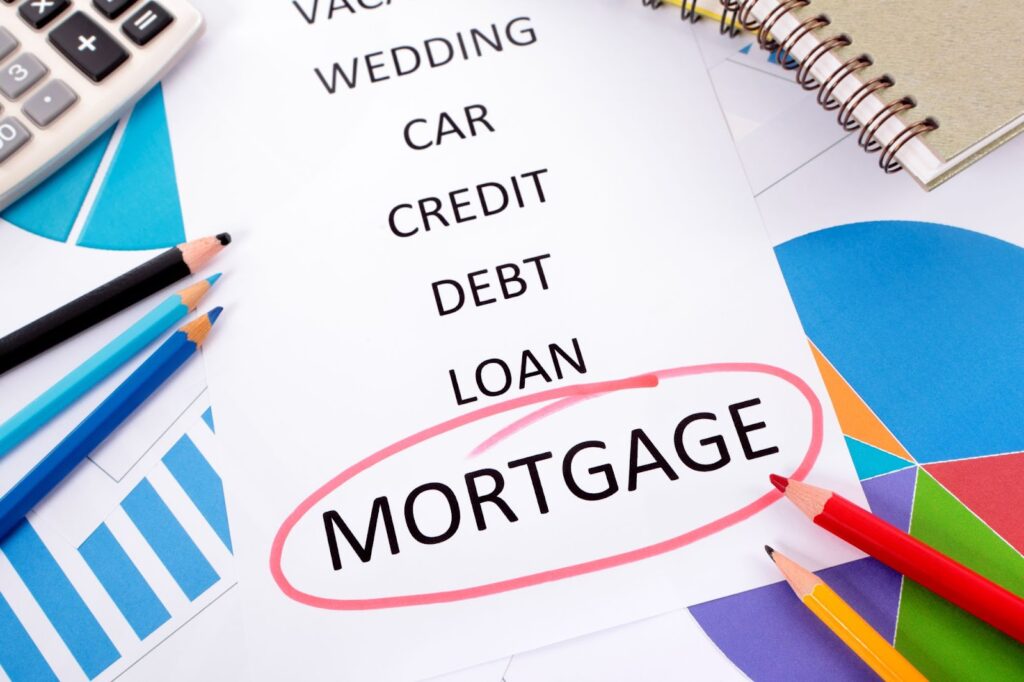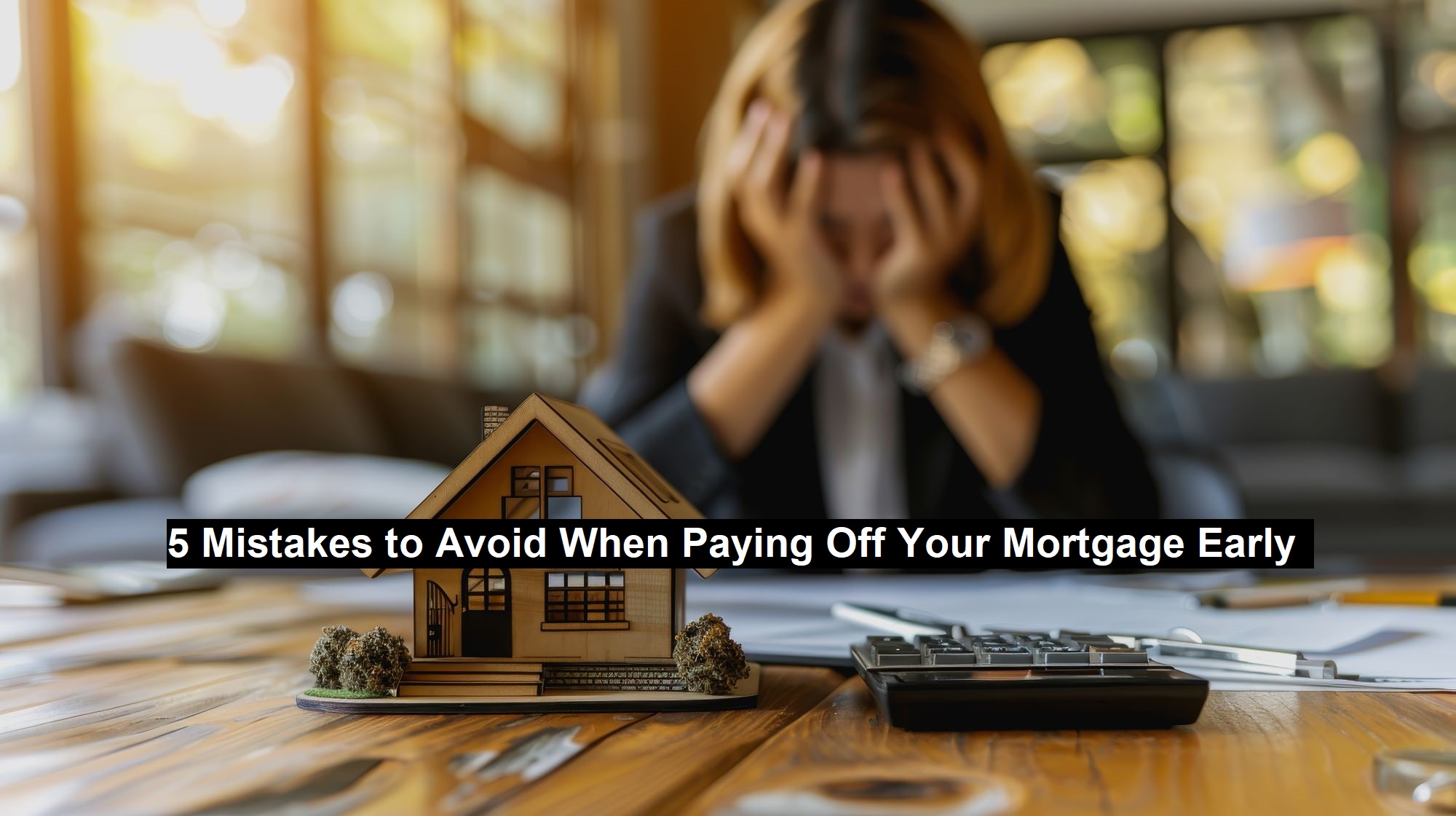5 Mistakes to Avoid When Paying Off Your Mortgage Early
Paying off your mortgage early is the best way to save money on interest and own your home faster. You can do this by making one extra payment each year. So you can switch to biweekly payments, or refinance to get a lower interest rate. However, some people make mistakes when paying off their mortgage early. For example, they might put too much money into the mortgage and leave without emergency funds. Others may forget to check for early payoff fees.
So, want to learn more about this? In the blog, I will share the best ways to pay off your mortgage early and avoid these common mistakes. Follow these tips easily, and you can reach your goal of being mortgage-free. So, let’s begin the discussion with the best way to pay off your mortgage early.
The Best Way to Pay Off Your Mortgage Early

There are some best ways to pay off your mortgage early. Here, I will share the best 4 ways that you should know:
- Make One Extra Payment Per Year
You can make just one extra payment each year to pay off your mortgage faster. This extra payment is known as principal as it goes toward the main loan amount. Utilizing an Online EMI Calculator can help you understand the impact of different interest rates, loan terms, and down payments on your monthly mortgage payments, allowing you to make informed decisions and plan your budget effectively. Remember this one extra payment can reduce the interest you pay over time. So, you must try using a tax refund or work bonus to make this payment.
- Pay Your Mortgage Biweekly instead of Monthly
You can make biweekly payments instead of monthly to pay off your mortgage early. This means you have to pay half of your monthly payment every two weeks. By the end of the year, you will make 13 full payments instead of 12. So, this can help reduce your loan balance faster.
- Reduce Your Mortgage Interest Rate by Refinancing
So, if you have a high interest rate you can go for refinancing. With this, you can replace your current loan with a new one at a lower rate. This can lower your monthly payments or let you pay off your loan sooner.
- Pay Off Your Balance In Cash
If you have savings, consider paying off the rest of your mortgage in cash. This might work well if you are near the end of your loan or have come into some extra money. Improving your credit score can significantly enhance your personal loan eligibility, which can be strategically used to accelerate your mortgage payoff and potentially save on interest costs. Paying off the mortgage completely means you will own your home outright. So, it means you can save on future interest payments. Ensure that you always have enough savings left for other expenses.
Here Are 5 Mistakes to Avoid When Paying off Your Mortgage Early
Most people make mistakes when they try to pay off their mortgage early. So, there are 5 major mistakes that you must know. So the mistakes are:

- Putting All of Your Money Into Your Mortgage
You should’t every extra dollar into your mortgage. It may sound smart, but it can leave you strapped if an emergency happens. Here, emergency means unexpected medical expenses or a job loss. After that is set, putting extra money into your mortgage will feel more comfortable.
- Failure to Apply Extra Payments to The Principal
If you make extra payments, double-check that they are going toward the loan’s principal balance. This helps lower the total amount you owe faster, reducing the interest you’ll pay over the life of the loan. Be clear with your lender so that every extra payment counts toward the principal.
- Do Not Ask If There Is A Penalty for Prepayment
If you’re making extra payments, double-check that they’re going toward the loan’s principal balance, not just future interest. This helps lower the total amount you owe faster, reducing the interest you’ll pay over the life of the loan. Be clear with your lender so that every extra payment counts toward the principal.
- Not Considering Your Opportunity Cost
Think about other options, like paying off high-interest debt or investing in retirement savings. Compare your mortgage interest rate with potential returns from other investments to see what makes the most sense for you.
- Getting A Longer Loan Term When You Refinance
Refinancing can lower your interest rate, but be careful about extending the loan term. If you stretch your mortgage back to 30 years, you’ll likely end up paying more in interest overall. When refinancing, consider a shorter loan term if you want to truly save money over time.
How Does Paying off My Mortgage Affect My Credit Score?

When you pay your mortgage means you have achieved something big. Now, you may wonder how paying off the mortgage affects your credit score. Well, most people expect that the score will go up. But the reality is quite different than expected. So, the readability is when you pay off the mortgage means your score will drop slightly. It usually happens because you don’t have any remaining debt or credit report that can affect your credit mix.
Your credit score gets benefits when you make mortgage payments over the years. Lenders consider your record of on-time payments. So, paying off your mortgage doesn’t greatly affect your risk of defaulting on other debts. After you make your final payment, your credit score may drop by about 10 points. Securing your funding round can provide the financial freedom to aggressively pay down your mortgage, allowing you to strategically allocate capital towards debt reduction and achieve faster financial independence. This can depend on five factors such as payment history, credit use, credit length, new accounts, and credit types. So, paying off your mortgage can reduce your credit history length or change your credit mix.
Wrapping up
In the end, you must pay off your mortgage on time. While paying off the mortgage early most people make mistakes. So, if you are planning to pay off your mortgage early then you must avoid some mistakes for the best outcome. So, you must know about these mistakes so that you can avoid them. Here, I have shared 5 major mistakes that most make while paying off their mirage early. Remember, it is also important to make sure extra payments go toward your principal balance. So you can keep these tips in mind so that you can pay off your mortgage early.

